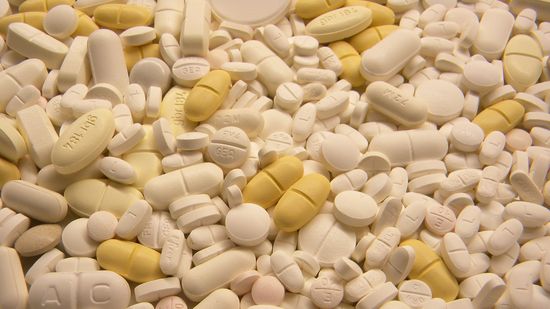Good Luck With That One: A Funder's Latest Challenge to Big Pharma
/
Drug companies aren’t exactly forthcoming with the trial results of new medicines. One-third of the new FDA-approved drugs can’t be found in medical literature or in the federal drug database created for physicians. The pharma industry plays a game of hide-and-seek with clinical results.
A $3.6 million grant from the Laura and John Arnold Foundation aims to make sure that healthcare professionals and patients know what some pharmaceutical companies have been hiding. Grant recipient Bioethics International intends to expand a pharmaceutical industry scorecard that exposes irregular or nonexistent reporting practices by the drug companies.
In all, the Arnold Foundation has pledged more than $17 million in support of clinical trial transparency in the United States. In addition, it's sunk more than $12 million into what it describes as "research and pilot projects aimed at building a financially sustainable drug market that allows patients to access the medicines they need, without compromising incentives for drug development."
Those are big numbers for any foundation, but the scale of this challenge is formidable. Pharma isn't just a massive industry, with hundreds of billions of dollars in annual sales, it's also one of the most powerful players in Washington. Since 1998, it's spent more on campaign contributions and lobbying than any other industry in the United States.
Related: A Funder Targets the Country's Sick Pharma Marketplace. Will It Get Anywhere?
The Arnold Foundation likes big challenges, but it doesn't like to waste its money in the face insurmountable odds, and it's hopeful about the clinical transparency work. It believes that promising breakthroughs in medicine and full-disclosure of the testing procedures aren’t mutually exclusive.
That might be a bitter pill for Big Pharma to swallow, though.
Drug companies have a profit motive to get new medicines approved in the United States as quickly as possible to offset the billion-dollar investment in research and development for each new drug. And lots of people are waiting anxiously for those drugs, whether its children who contract meningitis or cancer patients diagnosed or those with Alzheimer's. The end game of reducing suffering isn't in dispute. How the U.S. approves new drugs is, however.
Bioethics will use the grant to expand the Good Pharma Scorecard, which launched in 2015 on a limited scale. The inaugural scorecard ranked the 20 pharma companies and their new FDA-approved drugs for 2012, primarily on legal and ethical compliance.
The Good Pharma Scorecard v. 2 will push those boundaries considerably. By aligning with the Arnold Foundation’s mission to “improve the reliability and validity of scientific research across fields that inform individual decision making,“ the BioEthics team led by Dr. Jennifer E. Miller at the NYU Langone Medical Center is going deeper this time. The expanded rankings will profile all newly approved drugs, vaccines, biologics and medical devices that receive FDA approval. And, it will go even further.
Only two pharma companies released 100 percent of their trial data for FDA-approved drugs in the 2012 study period. Positive results are twice as likely to be reported as negative ones. A physician or healthcare provider who goes looking for the 2012 drug data won't find anything listed 35 percent of the time. Half of all drugs lack trial data on patients who actually had the disease.
The second edition of the Good Pharma Scorecard digs deeper into the willingness of the pharma companies to disclose clinical trial data and results, an independent assessment by Miller’s team of the reliability of the trial-data disclosures, and “other concerns related to healthcare innovation.”
An expanded Pharma Scorecard has benefits for health care professionals and consumers who get actively involved in their treatment options. While the patients afflicted with the more aggressive forms of cancers are in a race with time to reach remission, their physicians occupy an ethical middle ground. Doctors must carry out their Hippocratic oaths “to do no harm” yet balance their professional duty with a more human one: improving a quality of life or saving one.
The Arnold Foundation believes that accurate research “can have tremendously beneficial consequences for individuals and society.” The danger of poorly conducted research lies in the perception that published results are scientifically sound. “A substantial portion of research does not adhere to rigorous standards for quality and transparency,” and risks doing great harm.
The Arnold Foundation has been on a quest to improve the integrity of research, across different fields, for years now, as we've been reporting. Not a lot of other funders work this beat.
Related: The Billionaire Couple Targeting Shoddy and Secretive Science
Dr. Miller’s team do more than point the finger at shadowy practices by pharma companies. They create best-practice and ethical benchmarks for drug company R&Dand manufacturing. Transparency within the drug industry is “critical to advancing patient and global public health as well as protecting research participants,” which is why Bioethics International says it focuses on issues that matter most to patients. The new and improved Good Pharma Scorecard is expected to be released later this year.








